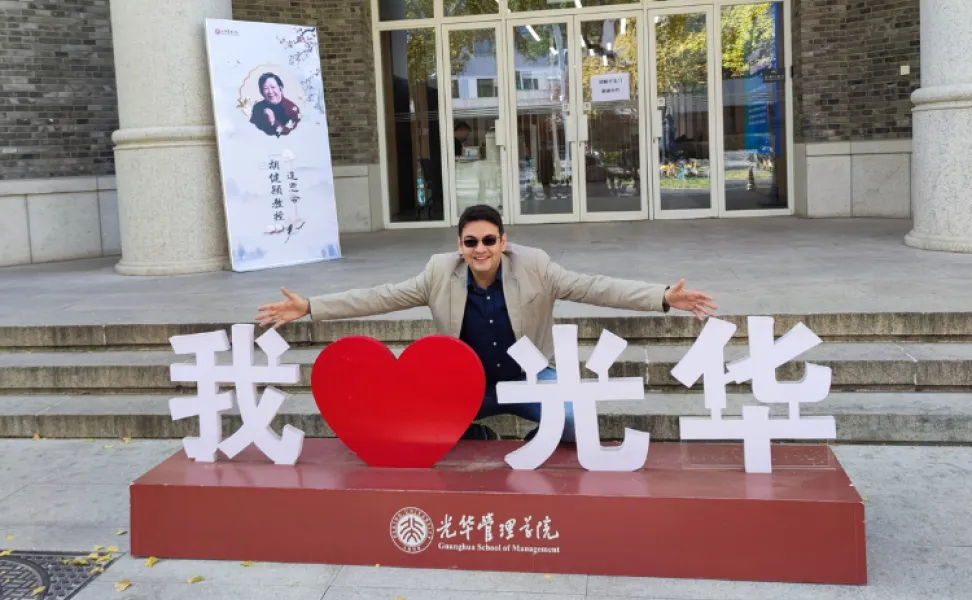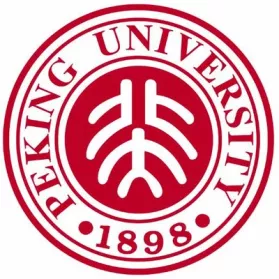Rafael Rezende Macedo has always been interested in the world beyond what’s in front of him.
Originally from Brazil, he took an interest in learning about other cultures at an early age, prompting him to take steps such as learning English and connecting with friends in different countries.
In 2008, after graduating from university, Rafael embarked on a career as an electrical systems engineer in the city of Campo Grande. When he found out his employer was being acquired by a company in China, he welcomed the news feeling this would provide the chance to learn more about the country.
After traveling to China on several occasions and immersing himself in the unique cultural norms and business practices, Rafael identified a career opportunity. He felt that cultural differences between the firm’s Brazilian and Chinese stakeholders created a need for culturally-versed professionals.
“I observed the real problem that the culture was very hard to understand. And there was a lack of people that could work as a bridge who could understand both sides,” he explains.
Several years into his engineering career, he set himself the goal of studying an MBA in China, where he could gain the business acumen and cultural awareness to bridge that gap.
Enrolling in a top MBA in China
When searching for an institution that could help achieve his aims, Rafael was immediately attracted to Peking University (PKU) Guanghua School of Management. One of China’s most prestigious business schools, the PKU Guanghua MBA ranks among the top five programs in China and it has a reputation that stretches globally.
“PKU stood out in terms of its reputation—I would be studying with the brightest minds in China,” he explains. “It would give me access to very big networking [opportunities] that would help me to achieve my career goals.”
With modules such as China in the Global Political Economy and Business Chinese, the curriculum blended Chinese tradition with modern day business practices. Convinced it was the right fit, Rafael successfully applied and in 2020 he took the decision to resign from his job and join the PKU Guanghua MBA cohort.
A highly diverse MBA experience
Like many students who enrolled at business schools across the globe in 2020, Rafael found his experience disrupted by the Covid pandemic.
However, despite being unable to study on-campus, he maintains that he gained a diverse MBA experience and feels studying online even provided enhanced networking opportunities.
“The experience was amazing, and more than I expected because I had the opportunity to meet people worldwide,” he explains. “Working with students all around the world, all of them focused on bridging China with the culture in their countries, was something that really opened my mind.”
Each year, PKU invites professors from a variety of top global institutions to teach cross-topic lessons to the MBA cohort. Rafael got the chance to learn from experts at the likes of Harvard Business School and Oxford University’s Said Business School.
The MBA curriculum teaches a broad array of business fundamentals ranging from Managerial Economics to Organizational Behavior. From the very first session, professors encouraged Rafael and his fellow MBA students to broaden their mindsets and think critically.
“Professors were saying: ‘You guys are not here to learn how to answer questions, we are going to prepare you to be leaders of the world’,” he says.
This approach proved challenging. As someone who’s previous roles were largely technical in nature, focusing on broad business topics and managerial expertise was a new experience for Rafael.
Combined with a focus on soft skills, the rigorous curriculum allowed him to develop his leadership capabilities.
“Critical reasoning, how to think in an executive way, in a macro way—these were things that I improved a lot,” he explains.
Building a cross-cultural career
While studying at PKU, Rafael got the chance to apply his new knowledge and skills through various practical learning initiatives.
During the Integrated Practicum Project (IPP), he spent time working directly with the Chinese division of Panasonic Energy, where he gained an insider view on local business practices.
This experience, as well as his newfound knowledge and managerial expertise, helped Rafael embark on a new path after graduation. He returned to Brazil where he was able to achieve a long-term goal by transitioning into the renewable energy sector.
Today, two years after leaving the PKU Guanghua MBA, he is deputy country manager for CGN Brazil Energy, the Brazilian division of China General Nuclear Power Group.
Responsible for managing the operations and maintenance of several renewable energy plants, the role leans on Rafael’s strategic abilities. He also has to navigate the cultural nuances of working within the local environment and for a major business in China.
Reflecting on his journey since enrolling in the MBA program, Rafael feels the MBA provided him with a solid foundation for success.
"It helped me a lot to get where I am now in the top leadership," he explains. “When I entered the company I could help overcome several cultural barriers.
“The strategic goals of the company are being implemented, and this is done more easily because I know how to deal with this culture.”




